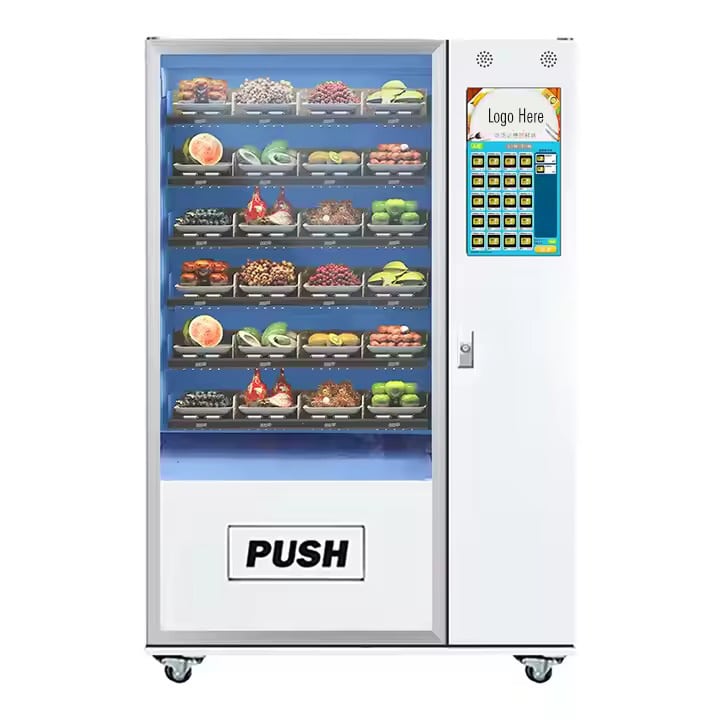Vending machines have long been a symbol of convenience, offering everything from snacks and beverages to newspapers and personal care items. However, the vending machine of the future is set to be much more than just a simple dispenser of goods. As technology continues to advance, vending machines are evolving into sophisticated, intelligent systems that are reshaping the landscape of automated retail. These changes are not only improving the functionality and efficiency of vending machines but also enhancing the customer experience in ways previously unimaginable.
The Rise of Smart Vending Machines
One of the most significant developments in the vending machine industry is the integration of smart technology. Smart vending machines are equipped with advanced sensors, touchscreens, and connectivity features that allow them to interact with customers in new and exciting ways. These machines can provide real-time inventory updates, suggest products based on customer preferences, and even offer dynamic pricing based on demand and supply factors.
For example, a smart vending machine might use facial recognition technology to identify a returning customer and suggest their favorite snack or beverage. It could also adjust prices during peak hours or offer discounts on products nearing their expiration date. These capabilities not only enhance the customer experience but also help operators optimize their sales and reduce waste.
IoT and Real-Time Monitoring
The Internet of Things (IoT) is another technological advancement that is revolutionizing the vending machine industry. IoT-enabled vending machines are connected to a central management system, allowing operators to monitor and control multiple machines remotely. This real-time monitoring capability enables operators to track inventory levels, detect malfunctions, and even predict when a machine will need maintenance or restocking.
For instance, if a vending machine manufacturer in a busy location is running low on popular items, the operator can receive an alert and send a restocking team before the machine runs out of stock. This level of responsiveness not only improves operational efficiency but also ensures that customers always have access to their desired products, leading to higher satisfaction and repeat business.
Cashless and Contactless Payments
The shift towards cashless and contactless payments is another trend that is shaping the future of vending machines. As consumers increasingly rely on digital payment methods, vending machines are adapting by offering a variety of payment options, including credit and debit cards, mobile wallets, and even QR codes. This flexibility makes it easier for customers to make purchases without the need for physical currency, which is especially important in today's increasingly digital and hygiene-conscious world.
Moreover, the integration of mobile payments and digital wallets into vending machines opens up new opportunities for personalized marketing and loyalty programs. Customers can receive special offers, discounts, or rewards directly through their smartphones, creating a more engaging and interactive shopping experience.
Artificial Intelligence and Personalization
Artificial Intelligence (AI) is another powerful tool that is driving the evolution of vending machines. AI algorithms can analyze customer data to identify trends and preferences, allowing machines to offer personalized product recommendations. For example, an AI-powered vending machine in a gym might recommend protein bars or sports drinks to customers who frequently purchase fitness-related items.
Additionally, AI can be used to optimize the product mix within each machine based on the purchasing habits of the local customer base. By tailoring the product selection to the preferences of the surrounding community, operators can maximize sales and minimize the risk of stocking items that don't sell well.
The Future is Automated and Connected
As these technologies continue to develop, the future of vending machines looks increasingly automated, connected, and customer-centric. We can expect to see vending machines that are fully integrated into smart cities, capable of communicating with other devices and systems to provide a seamless shopping experience. For example, a vending machine might communicate with a nearby digital billboard to display personalized advertisements based on the products available in the machine.
In addition, the combination of AI, IoT, and big data analytics will enable vending machines to become more predictive and proactive. They will be able to anticipate customer needs, automatically adjust their product offerings, and even autonomously order restocking supplies based on real-time sales data.
The future of vending machines is bright, with technology playing a pivotal role in shaping the next generation of automated retail. From smart features and IoT connectivity to cashless payments and AI-driven personalization, vending machines are becoming more than just convenient dispensers of goods—they are evolving into intelligent, responsive systems that enhance the shopping experience for customers and optimize operations for businesses. As these trends continue to unfold, vending machines are set to become an integral part of the retail landscape, offering new levels of convenience, efficiency, and personalization for consumers around the world.
